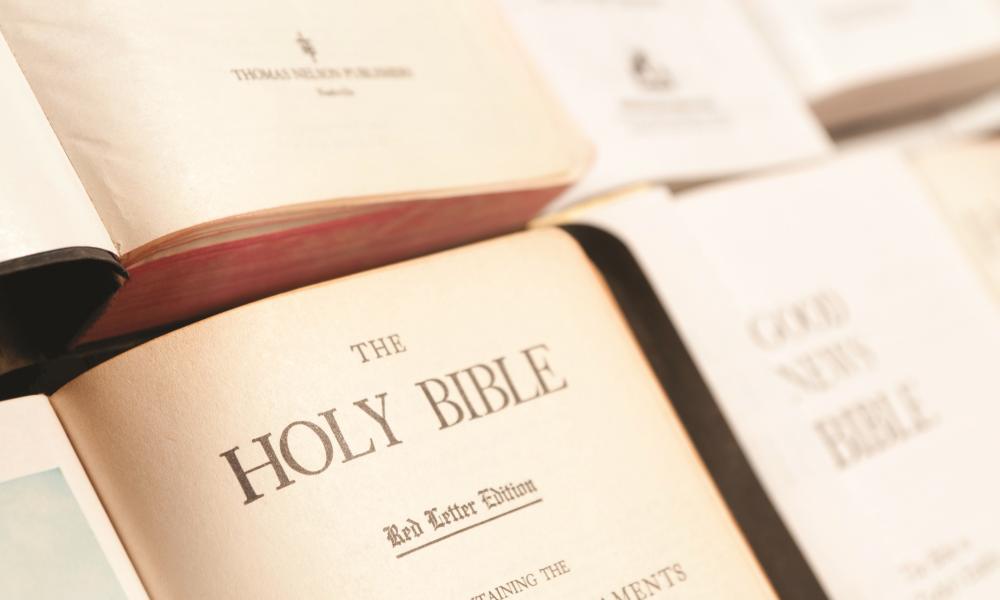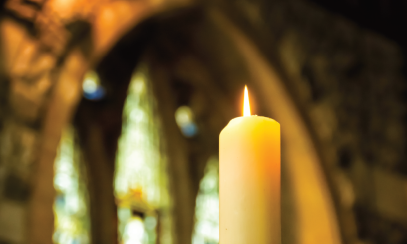
Why are there so many different Bibles?
DEAR FATHER JOE: Why are there “Protestant Bibles” and “Catholic Bibles”? What’s the difference and how did that happen?
DEAR FATHER JOE: Why are there “Protestant Bibles” and “Catholic Bibles”? What’s the difference and how did that happen?
OK, let’s get right to this one!
First of all, we need to remember that the Bible is a collection of books. No one sat down and said “I’m writing Scripture!”, there was no such idea for them to build on. Instead, the Holy Spirit directed certain people throughout history to record the wonderful deeds of the Lord and directed them to write it in a certain way. Discerning what writings belonged in the Bible was a process that began way back in time and continued until the fifth century A.D. We believe that God led his people through the process to determine what writings were divinely inspired and which ones weren’t.
In the end, our Jewish heritage passed on to us two versions of the Hebrew canon that we call the Old Testament, one including the deuterocanonical or Apocryphal Books, and one without those books.
When Christianity really began to take shape, the leaders of the Church gathered numerous times to pray and discern which early Christian writings were divinely inspired and which Old Testament canon to use.
To determine which Christians writings were divinely inspired, the discussion tended to center around four questions:
1. Was the author an apostle or did they have a close connection with an apostle?
2. Is the book being accepted by the Body of Christ at large?
3. Did the book contain consistency of doctrine and orthodox teaching?
4. Did the book bear evidence of high moral and spiritual values that would reflect a work of the Holy Spirit?
Using those questions and the guidance of the Holy Spirit, in 419 A.D., the Church gave us “the last word” on what books comprise the Bible: The 46 books of the Old Testament (including the seven deuterocanonical books) and 27 books in the New Testament.
This was and is the Catholic Bible.
The first break from the canon of the Bible came when Martin Luther broke communion with the Catholic Church. One of the decisions he made was that people should only use the canon of Scripture that excluded the deuterocanonical Books. That version of the Bible is the one we commonly call the Protestant Bible. It removes the following books:
1. Tobit
2. Judith
3. Wisdom
4. Sirach (or Ecclesiasticus)
5. Baruch
6. 1 Maccabees
7. 2 Maccabees
8. Some part of Daniel & Esther
These books that were removed are called the deuterocanon (“second” canon). Luther and other Protestant theologians removed them because, at the time, they did not have copies of them in Hebrew, only in Greek. Those books had always been included in the Greek version of the Old Testament, which was called the Septuagint. The Septuagint was widely used by Jewish people who had had to leave the Holy Land – the Jews of the Diaspora. We now have manuscripts, or partial manuscripts, that show that most, if not all, of the deuterocanonical books were written in Hebrew or Aramaic.
If you haven’t yet checked out the wonderful books of the Bible listed above, please make sure and do so: I think they are amazing! For more information about them, check out the notes in a good study Bible such as the New Revised Standard Version, or get hold of a good Bible commentary.
Father, I keep getting mailings from Catholic groups that send me medals, coins and other blessed things and I don’t know what to do with them. I keep putting them in a box because I don’t think I can throw away anything that is blessed, right?
I cannot tell you how many times I run into this question: you are not alone!
Right now, as I type this, I am looking at a Ziploc bag of medals, “religious coins,” bookmarks and crosses that were sent from religious organizations seeking donations.
I am not at all a fan of these practices because people often don’t want the things they receive, but don’t know how to dispose of them. To help do what I can, I encourage people to give them to me and I do any number of things to properly dispose of them.
First, I work with my local funeral homes and we bury them under people’s caskets. It’s a nice way to dispose of potentially sacred things in sacred ground.
Second, I simply collect them and, when I have a large enough collection, I bury them myself out on the Church property or somewhere else that is sacred ground.
Third, I find a Church that is doing renovations and ask them to place them in the ground there, underneath new walls or foundations.
If you can work with your pastor on any of these ideas, great! But it’s not always practical, and not every pastor has the same level of access to resources. Please don’t expect that every priest is able to take your religious medals and dispose of them. If none of these options are available, bury these items in your yard – perhaps near a statue of Mary or St. Francis.
As best you can, try to keep all these things together so that nothing gets lost. If you worry that you have unintentionally disposed of such things, let that go and proceed with the idea I’ve given you and you’ll be fine.



